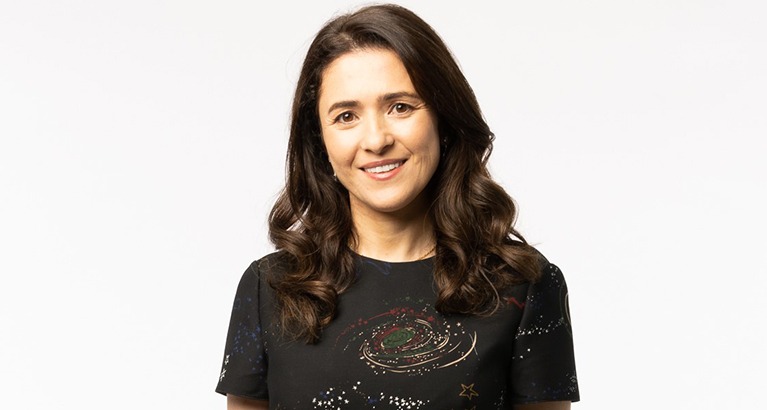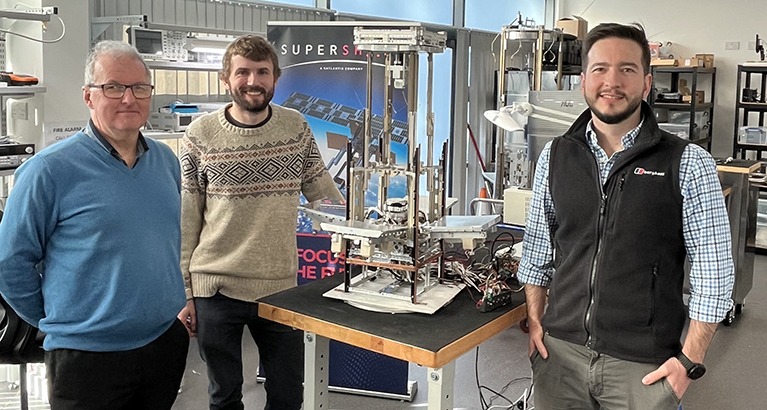Returning to Cambridge Judge is a full-circle moment for me! And because it’s such a full-circle moment, I want to take this opportunity to reflect on journeys, the impact of education, and the invisible ties that connect us all.
no one leaves home unless
home is the mouth of a shark
you only run for the border
when you see the whole city running as well
These are the words of the British-Somali poet Warsan Shire, who perfectly captures what it is to be a refugee, what it is to leave home behind, and to run towards the unknown.
your neighbours running faster than you
breath bloody in their throats
A new beginning in Turkey and the power of education
In June of 1989, I ran for the Turkish border with my parents and younger brother, and with only 2 suitcases to our name. When we made it, I saw confusion and fear, and I will never forget my father screaming like a wounded animal as he ran and threw himself on what he called ‘the motherland soil’. Looking back, I realise that it was in that moment, looking at the chaos and confusion all around me, that I made a decision: I needed to get a good education.
We started our new life in a Red Cross tent in a refugee camp. When I eventually went to school, I barely spoke Turkish, and we did not have money to buy notebooks, so I learned how to write in the most economical way, in a class alongside 83 fellow students. In those conditions, the dream of even a ‘good’ education, much less one that involved the mythical Cambridge, seemed bleak. But I held onto that vision as a North Star, a light guiding me out of darkness. To this day, it defines everything I do in life and has truly been my saviour. Education (particularly a first-class one like that provided by Cambridge) has allowed me to live in multiple countries, pursue interests in entrepreneurship and academia, and reflect back on those days of hopelessness with distance and peace.
How immigrants contribute to society and the economy
But I realise that I am one of the very small minorities of lucky immigrants who have that luxury. So, my intention is not to just to praise the value of education, but to share with you a few points that we might all learn from and apply to our everyday lives from the incredible successes that immigrants contribute to our economies and ecosystem.
Immigration and the plight of refugees are hot political topics. My purpose is not to wade into politics, but rather to focus on some elements from my own research on what makes immigrant founders and business leaders so successful. Because, after all:
- nearly half of Fortune 500 companies were founded by immigrants. Consider some of the companies: Moderna, Google, WhatsApp, BioNtech, Pfizer, Procter and Gamble, Duolingo, Calendly
- Fortune 500 companies founded by immigrants, or their children generated over $7 trillion in revenue in 2022, more than the GDP of every country in the world apart from the US and China
- 4 out of 5 billion-dollar startups have founders or leading executives who are first- or second-generation immigrants
- immigrant-founded businesses grow faster and survive longer than those founded by natives
What can we learn from successful immigrant entrepreneurs?
So, what is their secret? What can we all learn from the stories of people who often arrive in foreign countries with next to nothing but go on to build companies that have revolutionised the world?
While there’s no one-size-fits-all answer, given the vast diversity and complexity of immigrant experiences, my research has identified some distinct characteristics and principles commonly found among these entrepreneurs. My hope is that these serve as interesting points to consider as we all navigate our own professional experiences.
- The first point relates to the past: where does one come from and how does that inform a business idea?
- The next point relates to the present: how does one turn an idea into a reality?
- And the final point relates to the future: how does one strive to achieve something that is of much greater value than profit, which is the key reason why, in my opinion, immigrant entrepreneurs redefine success to truly build businesses that last?
So, let’s start with the past. Immigrant entrepreneurs are more likely to come up with powerful business ideas because their backgrounds impart on them particularly rich experiences of living across cultures. The knowledge and expertise that comes from those experiences are forces that they often draw on when building businesses.
The orthodox position on entrepreneurship is that the budding entrepreneur should look outward into the world to identify a gap in the market that they can profitably fill. But many immigrant entrepreneurs tend to start by looking inward, drawing on their complex multicultural identities to create a business that truly matters to them.
Follow your heart – be it a tea company or an ad-free communications platform
For example, I interviewed Reem Hassani, an Iraqi-American who co-founded, with her brother, Numi Organic Tea, the world’s largest fairtrade tea company. And she shared with me her approach to starting a business: “Entrepreneurs need to follow their heart, and their vision, and their passion first and then see what’s out there, not the other way round.”
Another example is Jan Koum. Growing up in the Soviet Union during the final years of communism, Jan felt the pervasive fear of being monitored during phone conversations – a fear I too remember from my childhood in Bulgaria. After moving from newly independent Ukraine to the United States in the early 1990s, he faced new challenges, including the high cost of calling home and the overwhelming noise of constant advertising in American culture.
Jan eventually drew on all those diverse experiences from 2 different cultures – the fear of monitoring, the cost of calling, and the annoyance of advertising – to create a business that offered a fully encrypted, free to use and ad-free way of communicating with the rest of the world.
You have probably used that service at some point today, because WhatsApp is now used by nearly 3 billion people worldwide.
Turning ideas into reality, but with community at its core
So, having looked at how immigrants generate business ideas, let’s look at how they turn those ideas into realities in the present.
Immigrant entrepreneurs tend to prioritise community above all else. In that sense, they adopted ‘stakeholder capitalism‘ decades before it was a popular talking point (and certainly before the politicised debates surrounding ESG investing).
There are several reasons why this happens. Many immigrants come from countries where the collective is valued more than the individual. They also lose many of their ties, and when they start to rebuild them, they value and appreciate the extra strength that every new connection brings. Because they are often uprooted and replanted in a new soil and have to rely on every single resource they have, there is a tendency to rely on those who are ‘like you‘, or who at least understand and can appreciate your shared experiences.
When we first immigrated, our way out of the refugee camp was through a long-lost relative my father tracked down in Istanbul, who opened her home not just to us, but also to five other families. Today, her son is our factory manager in Istanbul, and her daughter is our accountant. We built the business together, working alongside each other since day 1. Our biggest success remains the employees and communities we have nurtured over 25 years: hiring refugees, women, and youths from disadvantaged backgrounds, implementing profit sharing programs, and reinvesting profits into our local communities in Bulgaria and Istanbul.
Immigrant enterprises cherish a sense of legacy
But to be a successful business requires not just a deep appreciation of the past and acknowledgment of the present, but also a vision for the future.
What I have seen in my research is that immigrant entrepreneurs tend to be motivated by more than just profit, but also a profound sense of legacy. I think that probably stems from the fact that people who have experienced deep hardships are more likely to want to create companies that have positive impacts and leave a better world for all.
A powerful example comes from the story of Luis von Ahn. Luis grew up in Guatemala, a place where quality education is a privilege rather than a right, and he saw what lack of access to education can cause.
Inspired by those experiences, he aimed to create a platform to democratise learning and make it available for all. So, Duolingo was born to provide free language education, and has become a powerful tool for social change that has increased access to language education around the world.
The companies I studied emphasise a key learning that we can take from immigrant entrepreneurs: they look at business longevity as a vision that goes beyond quarterly earnings and look to make improvements that can last longer term.
Relying on unseen connections
Underlying all these principles are some fundamental truths. We are all connected, and nobody does it alone. Whether it is individual or business success, it all relies on unseen connections. Forests appear to be made up of individual trees, but each of those seemingly separate entities only thrives because of the vast and interconnected root system that links them all together. We are connected by the shared past we have from the privilege we have had to attend Cambridge. We are connected by a reunion dinner and evening we share together. And we can remain connected into the future, by taking the insights we learned at this amazing institution, along with the lessons from some of the world’s most successful entrepreneurs, to build not just better lives and businesses, but a better world.
Related content
You will be able to read more about the results of Neri’s research around business longevity and immigrant entrepreneurship when her book, Pioneers: 8 Principles of Business Longevity from Immigrant Entrepreneurs, is published in May 2025 (Wiley).





